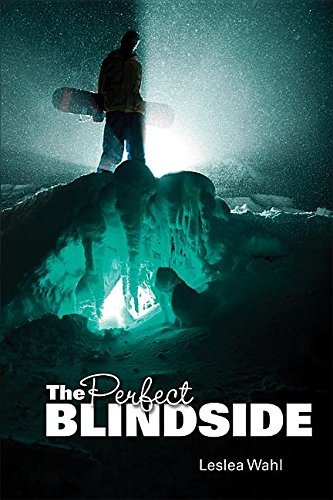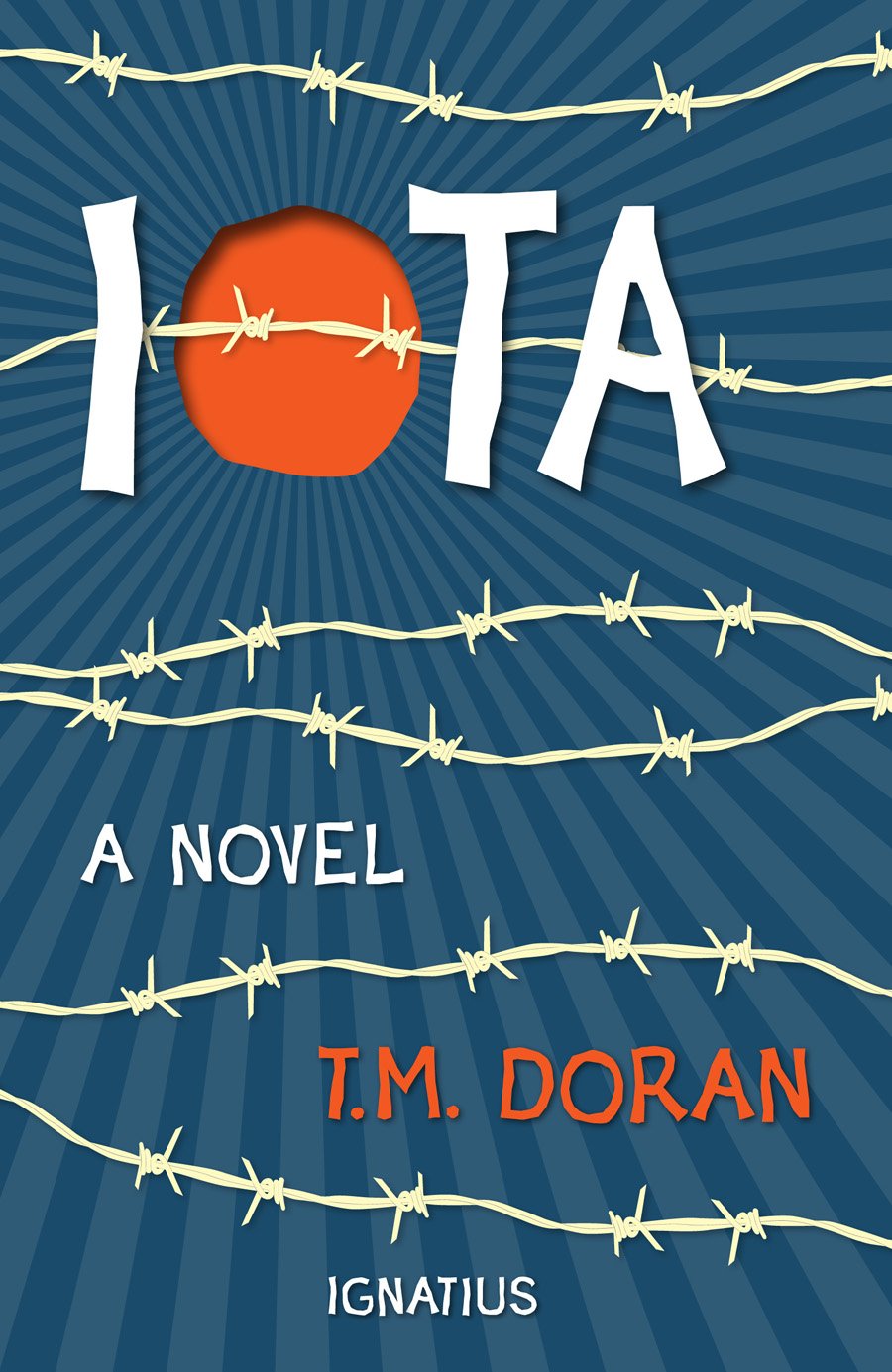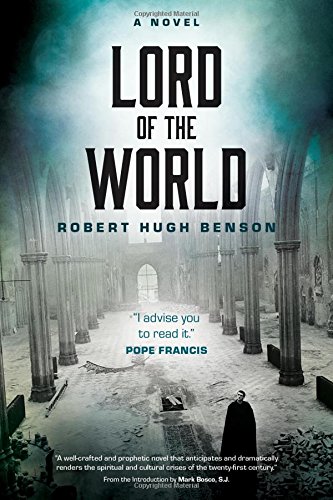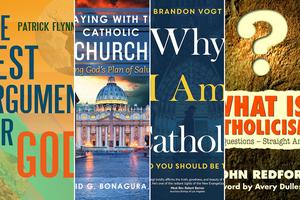Recent Reading: “The Perfect Blindside”, “Iota”, and “Lord of the Worl

Reading fiction is a particular passion of mine, and I've come to appreciate what a dear friend told me long ago about his own reading habits. He shared that he alternated the novels he read with nonfiction. "Otherwise," he said, "I would never read anything else."
I completely agree.
There's something about telling a story well in a world of your own construct. The same is true for nonfiction, I know, but I remain rooted in my love of fiction.
So it's with joy that I can admit to having finished three decent novels recently, all of them published by Catholic publishers. That doesn't, though, make them any less than their secular counterparts (I have a house full of avid readers, and we keep the librarians hopping with our piles of check-outs).
The Perfect Blindside, by Leslea Wahl (2015, Pauline Books and Media) is a young adult novel featuring a touch of romance, a lot of adventure, and no shortage of angst.

Jake's an Olympic gold medalist who's moved to Nowhereville. He's none too happy about it, and can't help but be interested in Sophie, who seems to be the only girl in school who's not overcome with his brand of awesome. The two of them clash and find themselves unlikely allies, but not without hurt feelings, he-said-she-thought drama, and at least one secret tunnel.
The book's written with an alternating point-of-view style, which allows Jake and Sophie to share their stories. It also gives you the feeling of knowing more...and less...than you might want to.
Sometimes, reading teen fiction gives me an insight into the young people in my life. The things I worry about and think about are more than a little different now than they were when I was a teen.
It's good to have a reminder of that, and also to see that even "good" kids can be jerks. These characters are real, with their faults and their strengths, not so different from the teens and preteens in my life.
The plot holds up, and even if you figure it out, you'll enjoy the trip to the end.
The themes cover fame and stereotyping as well as drugs and corruption. There is, perhaps, room to have a discussion about misuse of authority, and not just from the obvious authorities in our lives.
Overall, a book I enjoyed and recommend.
Iota: A Novel, by T.M. Doran (2014, Ignatius Press) is a slim book that made me think out of all proportion to the number of words.

Set as a flashback to 1945, Iota is told from the viewpoint of Jan Skala. Unexpectedly, Skala is arrested by the Russians occupying Czechloslavakia after the defeat of the Nazis.
But why?
Therein lies what may be an examination of conscience. I thought at first this was a book about the horrors of war (and it is), about the abuse we inflict on others (surely also true), and about discrepancy between the truth as it seems to us and the truth as it is objectively (again, it is).
Upon finishing the book, though, I found myself struck by the message of mercy, which is demonstrated and shown.
After months of imprisonment, abuse, and torture at the hands of his captors, Skala experiences a slow, gradual change of view. Suddenly, something he doesn't expect happens, something that shocks him and that he can't explain.
He also can't turn away from it.
In that moment, when he chooses, he finds mercy...and yet, the book's not over. There's another surprise waiting, and another perusal of truth as it seems and as it might be.
(Yes, I'm being vague about plot points. I don't want to ruin the surprise for you as a reader!)
This is the kind of current writing that I would like to see high schoolers reading and discussing. For that matter, this is the kind of book I'd like to see adults reading and discussing.
In my young teen years, I read Cold War novels by the dozen. I was horrified and intrigued by the adventure and torture. This book reminded me of those books, with the difference that this has a deeper meaning and not just a "win" at the end.
Definitely worth reading and sharing!
Lord of the World: A Novel, by Robert Hugh Benson, is a classic I had never heard of, but which boasts "I advise you to read it" - Pope Francis on the front cover.

Ave Maria Press released a new edition in 2016 of this 1907 novel. Confession: I skipped the (probably very interesting and educational) introduction by Fr. Mark Bosco, S.J., and just dove into the book. I had no clue what it was about, aside from the back cover's assertion that it's "one of the first dystopian novels of the twentieth century."
I'm a reluctant fan of dystopian literature: I even catch myself sort of understanding why it's so popular. I want to hope, even as I almost despair at the mess the world seems to be in.
Reading Lord of the World struck me with a familiarity that I wasn't expecting. It gave me a feeling of "Oh! This has been wrong for a LONG TIME!"
The plot follows a few characters: a priest, an on-the-rise politician and his wife, and a cast of supporting folks who feel all too much like today's politicians and citizenry.
The hope in this novel comes at the end in an unlikely way. I was expecting a fight, and I guess there was one at the end, but it was far from what I expected.
What is faith and what is the longing for spirituality? How is it manifested? Where do you find it? Interestingly, the answers aren't necessarily in the text or solved by the plot, but the seeds of thought are planted.
There's a chilling reality in this book: the way people both answer temptation and flock to false peace. I walked away feeling much the same as I did after reading 1984: humanity hasn't really changed. Maybe it won't. But hope remains, even when we face ourselves.
















